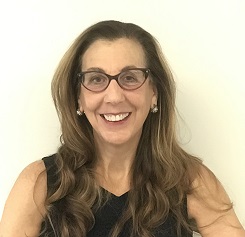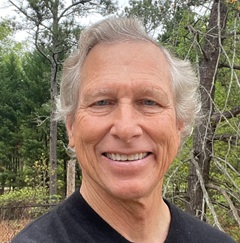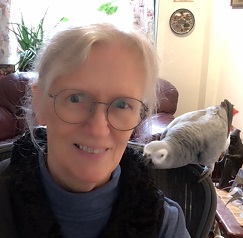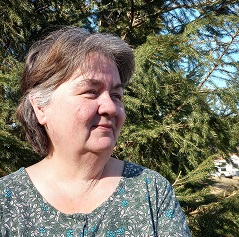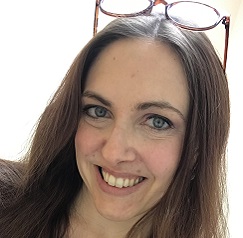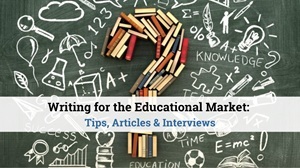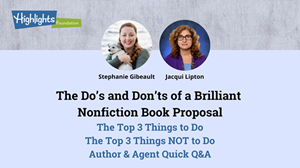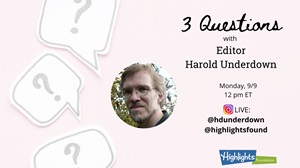Our educational market course faculty have a wealth of knowledge to share! We asked each of them to give us answers to three questions, and there’s a lot to be learned from their answers. By way of introduction:
Writing for the Educational Market: A 6-Week Online Program Faculty:
Sandra K. Athans, Literacy Specialist, featured speaker, former classroom teacher, and Ed Market writer
Mike Downs, author, Trade and Ed Market
Working Retreat: Writing for the Educational Market Faculty:
Paula Morrow, editor and Ed Market writer
Jan Fields, editor and Ed Market writer
Katie Kawa, Editorial Director at Rosen Publishing
Thanks to all for answering our questions!
How did you get your own start in the educational market?
Mike Downs:
I got my start in the educational market by attending a Highlights Foundation Educational Market workshop (how apropos!) In the workshop that I attended there were presentations, learning sessions, writing time, and one-on-one critiques. In fact, my co-presenter Sandra K. Athans was one of the faculty. She is amazing! Sandra finessed my submission package and I managed to get a two-book writing assignment from Rourke Educational within the next two months. I ultimately wrote three books for that particular assignment and since then– it’s been “off to the races.”
Sandra K. Athans:
Unlike Mike, I got my start in the educational market by wedging my big toe in a small crack in a backdoor.
At the age of 40, I changed careers and became an elementary school teacher. I was eager to find great books that fit well with the 4th grade curriculum. JACKPOT! I discovered literacy conferences where hundreds of publishers exhibited their books. I spent hours perusing all sorts of books, often thinking I could write this or I could write this better! I began contacting publishers, asking if I could write books for them. After some bumps and bruises, I started to land single jobs and then multiple jobs and then I became a regular “go-to” writer and received jobs routinely from a handful of top educational publishers. WHO KNEW there could be a much easier process for breaking into this market like taking our Highlights online course!
Paula Morrow:
I don’t remember; it just happened. Looking at my list of publications just now, I found that my first books written on assignment for a genuine educational publisher were for Heinemann in 2012. But I’d already written a number of articles for magazines in the Cobblestone group (which is semi-educational, marketed to schools and classrooms), going back to 1989, and I had published material in other areas even before that. I guess I must have contacted Heinemann-perhaps I saw a note on a writers’ listserv?
Jan Fields:
I first heard about the educational market by attending an SCBWI workshop decades ago. The whole idea of a market where you didn’t get rejection letters sounded wonderful, and I loved the variety of the subjects the presenter had written about. It sounded like a research-lovers dream. So the workshop really made me excited. Unfortunately, no one told me what I needed to actually do to break in. How was I to find these markets? What do I send them? How to I make connections? So I had the enthusiasm but no action plan. Then a friend who was working on a project with Abdo, told me they needed more writers and asked she could throw in my name. I agreed and stepped into a project adapting classic books for classroom use. I found the work challenging but so much fun. So I did about twenty books for the project, and then went on to pitch and do several series for the publisher. That gave me the impetus to start sending out my resume to the other educational publishers I knew about. My knowledge and experience grew with each new project, and I’ve stayed busy (for the most part) ever since.
Katie Kawa:
I got my start a few months after graduating from Canisius College in Buffalo, New York. I was looking for editing jobs and happened to find a posting on Craigslist of all places (the internet was a wild place back in 2010) about an educational publishing company in Buffalo looking to hire an Editorial Assistant. Not only did the post turn out to be legitimate (and not an elaborate human trafficking setup as my mother feared it would be), but I also got the job. Thus began my career with the Rosen Publishing Group. Since my early days as an Editorial Assistant, I’ve moved up the ranks from Associate Editor to Editor, and now I’m working as an Editorial Director. Along the way, I’ve written for various Rosen imprints, both my own and those of my colleagues, and I still find writing to be one of the best and most rewarding parts of my work.
What credentials do you need to write for the educational market? Do you have to know grade-level curriculum? Do you need to have experience as an educator or librarian?
Jan Fields:
When I began, I had no credentials for writing for the educational market beyond being an experienced writer (mostly of magazine fiction and nonfiction). I didn’t know standards or anything about curriculum. I didn’t have experience as an educator or librarian. I was simply a writer. The publishers have always been very clear about their needs, and then I write to the guidelines they give me. The guidelines alone have often been quite educational and I’ve learned so much about standards and reading levels and school curriculum that way. It’s meant I’ve picked up some knowledge along the way and now it takes me less time to “get up to speed” on a new project, but if you can follow directions and write clear, direct prose, you’re valuable to many of the educational publishers.
Now, having said that, having experience as an educator or librarian makes you extra alluring to an educational publisher. So does having advanced degrees or being familiar with state standards or even being an “expert” in something unusual like rock climbing or animal rehabilitation. In some areas of educational publishing (mostly of teacher-facing materials), it is required that writers have classroom experience or familiarity with specific sorts of curriculum. So those areas won’t be open to writers without that experience. But the field is so vast that you can simply find the spot where your interests and skills align with what they need, and keep pretty busy there.
Katie Kawa:
While I think it can be helpful to know curriculum or to have a background in education, I find that the most important things I look for in potential writers are writing experience that reflects a command of language and the ability to research and distill information for target audiences. I don’t necessarily look for specific credentials-I’ve had writers work for me who were teachers, journalists, recent college graduates, scientists, and career nonfiction freelancers. Each brought their own unique skills to the table.
I think the things that predict long-term success writing for the educational market more than a person’s background or credentials are their ability to meet deadlines, their basic writing skills, their ability to write to a younger audience without being patronizing, and their research skills or experiences with a given topic. I tend to gravitate toward writers who have a personal passion for or experience with a project I’m looking to commission writers for. For example, if I’m in charge of a series about sports, I’d love to work with a writer who has either written about sports or played them. The same goes for history-if I see on someone’s resume that they were a history major in college, I’m going to file that information away for the next time I need writers for a series of history books-and science, and so on.
Paula Morrow:
My M.A. is in library and information science, and I know children and child development from my years as a children’s librarian. I’ve no formal teaching experience, but I did a wide variety of programs for all ages at the library. Thus no credentials specific to educational writing. I learned about curriculum, standards (Common Core, etc.), grade-levels, etc. from the instructions that came with each assignment.
I think the main qualifications to write for the educational market are:
- the ability to read, retain, and synthesize information quickly and accurately;
- versatility: a recognition that every publisher is different and a willingness to tailor each manuscript to that particular publisher;
- a firm grasp of and appreciation for language;
- a strong commitment to meet deadlines.
Mike Downs:
To write in the educational market you need persistence, research skills, and some writing ability – but no credentials required! Your submission package with your query letter, areas of interest, and your writing samples are what will hook an editor and get you an assignment.
You do not need to know grade level curriculum. Even for assignments which require curriculum content, the publisher will give you the information you need.
Many successful educational market writers have no experience as educators or librarians – it is not required –fortunately for me — since unlike Sandra I am not a school system educator! However, having a job within the educational system (teacher, administrator, librarian, etc.) is a bonus! There are opportunities for writing test questions, assignment guides, and other school related material that you might have a better chance at — and editors are always thrilled to have writers who are familiar with the school system.
Sandra K. Athans:
I almost agree completely with Mike – there is no need to know grade-level curriculum. Yet, it may be a confidence-booster if you know how to find information on curriculum basics, should there be a quiz (kidding) should you wish!
For example, you can access the Common Core Standards to familiarize yourself with reading and writing expectations, as well as math. The Next Generation Science Standards will be helpful for grasping grade-level science basics. These sets of standards are likely the most useful, but let me reiterate that you do not need to study or even read them carefully. Simply recognizing they exist and knowing where to go to access them not only gives you the creds to claim “I’m familiar with the standards,” it should also, hopefully, give you some peace of mind!
Also, I almost completely agree with Mike that no experience as an educator or librarian is needed. Yet, having a skill, know-how, experience, or passion you can share with others makes you an ideal candidate to write for the educational market – and who doesn’t have at least one or more of these credentials! Don’t underestimate your experience as an educator extraordinaire! (We’ll show you how to spotlight your experience in the resume you’ll prepare for your submission materials).
What’s a common misconception you hear about the educational market, and what do you think creates that misconception?
Paula Morrow:
A lot of people seem to think work-for-hire is a bad idea because they want to retain their rights to all their work. Perhaps this stems from urban myths about companies republishing a writer’s work for vast profits. That doesn’t happen. Manuscripts written on assignment are usually so specific to the particular purpose that they have almost no resale value for the writer. (Note, though, that the writer can re-use the same research for other manuscripts.) Becoming a good educational writer can lead to a steady income stream. A w-f-h contract guarantees the writer payment for the work without the uncertainty of submitting and hoping for an acceptance. In fact, it’s the other way around: the editor is the one offering work, and the writer can accept or decline the assignment.
Sandra K. Athans:
In my opinion, the most common misconception about publishing in the educational market is that it is sometimes viewed as being less fulfilling than publishing in the trade market. To many writers in the educational market, this simply is not true! Lots of these writers prefer the many benefits of writing for this market, such as the profound ways your book can positively impact students, the powerful manner in which you will improve your writing and research skills, the fast-paced expertise you will develop on a multitude of topics, and the speedy schedules that will enable you to hold your published book in your hands in less than a year! These joyful and fulfilling benefits are unique to the educational market.
What might contribute to this misconception is a lack of understanding of the many positive intricacies of the educational market.
Katie Kawa:
As someone who has worked exclusively in the educational market for the last 14 years, one thing I always want to make clear is that, while many educational publishing imprints focus on elementary and middle school students, the educational market also covers high school and even college students. If you feel like you might struggle with writing books for young children about a topic but would have no problems conveying that information to an older audience, there are still opportunities for you. In addition, I think some people incorrectly think the educational sector of publishing is not a good place to go if you are a creative thinker and writer. While we often have guidelines or series concepts to work within and while most (but not all) of the educational market involves nonfiction, that does not mean it’s devoid of creativity. In fact, I’ve found that taking basic curriculum topics and making them fun and fresh is a great test of creativity and thinking outside the box. It’s also worth noting that I know plenty of educational publishers (Rosen included) who have moved toward publishing more fiction and picture books in recent years.
Mike Downs:
The most common misconception, or misunderstanding, about the educational market is probably the way you are supposed to query an editor to get an assignment. Many writers believe they need to pitch a particular story that they have already written. In fact, you are selling your “writing skills” to the educational market, not an actual manuscript. The submission package sent to educational publishers is much different from the query and manuscript you might send to a trade publisher.
Jan Fields:
One that I have heard and seen is that everything produced for the education market, and certainly all the books, are nonfiction. That comes from the fact that the bulk of educational material is nonfiction, but not all. I have written several chapter book series that were fiction. I’ve written literacy books that were fiction. I’ve done testing passages that were fiction. The educational market is dotted with fiction. I have fewer options if I want to write strictly fiction, and I have to put more effort into finding them, but they are out there. So are opportunities to write poetry or plays. I’ve done all of those at one time or other. The landscape of educational publishing is so varied. It’s not all one kind of thing. And it is constantly changing. It’s the perfect place for someone who likes variety in their work, which is probably why I’ve loved it all these years.




